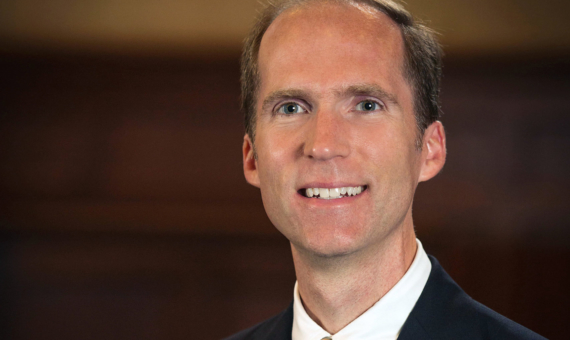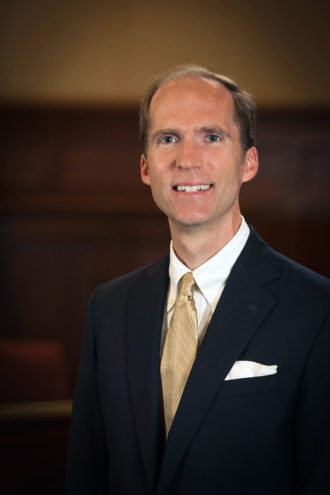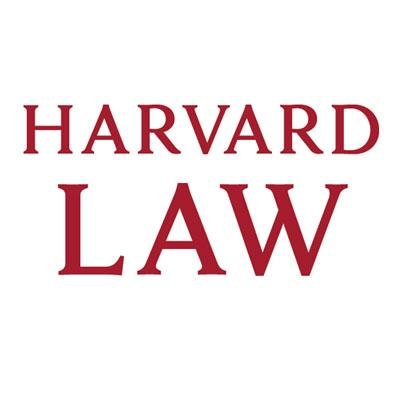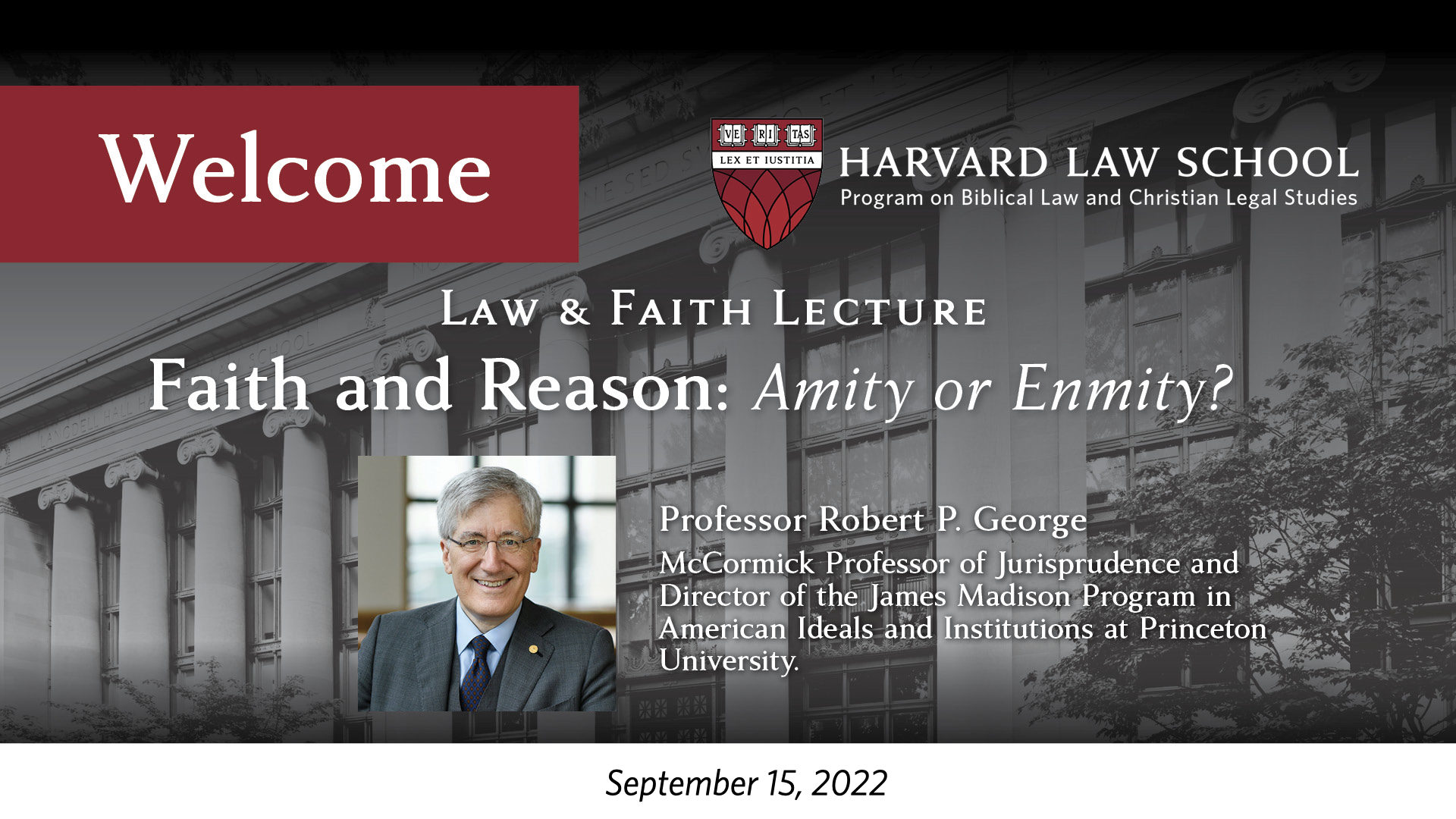
Gantt named executive director of Program on Biblical Law and Christian Legal Studies at HLS

L.O. Natt Gantt, II ’94 has been appointed the inaugural executive director of the Harvard Law School Program on Biblical Law and Christian Legal Studies and a lecturer on law. With extensive experience in both law and theology, Gantt was most recently professor and associate dean for academic affairs at Regent University School of Law and co-director of Regent’s Center for Ethical Formation and Legal Education Reform. He has served since last year on the American Bar Association’s Commission on Lawyer Assistance Programs (CoLAP) Well-Being Committee and was recently appointed as chair of the committee and to CoLAP’s Advisory Commission.
“Natt brings extraordinary education and experience to this task,” said Professor Jack Goldsmith, who was part of the program’s advisory board and hiring committee. “Through his writing, administration, mentorship, and participation in professional organizations, Natt is a national leader on student and lawyer well-being and on how legal education can and should foster students’ consideration of integrity as an important personal value and a crucial element of a successful career in public and private legal service. We are very lucky to have him.”
The Program on Biblical Law and Christian Legal Studies was launched in November 2018 with Professor Ruth Okediji as faculty director. It offers the opportunity to study questions related to law, leadership, and social change through debate and application of biblical teachings. Each year, the program has sponsored lectures, research fellowships and webinars, and hosts writing awards each year, on topics at the intersection of faith and law.
“I’m not aware of another law school with an existing program on biblical law,” Okediji said. “And that actually is surprising. One of the remarkable things about biblical law is its staying power. When we make available to students and scholars a center for the study of biblical law, we’re saying that it’s important for them to explore materials that have had a profound significance in giving color, purpose, and texture to English law, from which much of our own law derives. From human rights and race relations, to criminal justice reform and climate change, biblical law remains powerfully relevant — even if unacknowledged — in our engagement with today’s complex challenges.”
She said that Gantt’s theological background, research, and ABA experience make him a perfect fit. “Since his days as a student at HLS, Natt has been deeply invested in how legal education can do more to enrich the quality of lawyers’ professional lives. Lawyers play a vital role in our cultural understanding of what constitutes justice; Professor Gantt’s work as a scholar and with various ABA initiatives addresses the daunting task of how law schools can better equip lawyers to do the work of justice, measured in terms of their own flourishing and their capacity to facilitate human well-being in our modern age. Faith — even no faith — is an ever-present backdrop against which debates about law and legal education reform unfold.”
Gantt said that this appointment will further his longstanding interest in the intersection of law and theology. “It has always been a passion of mine to integrate those two domains, the legal field and my sense of ministry and professional calling, and to explore the importance of integrating faith into the life of a lawyer and the practice of law.”
He notes that the intersection occurs on two levels — one being the doctrinal connection between biblical principles and the law itself; the other being the role of faith in the personal well-being of those who study and practice law. “In the past ten years, I’ve become especially interested in the relevance of faith to the professional identity development of a lawyer,” he said. “Anyone’s religious faith might affect the way they view legal decisions and issues, but it also affects the second level — how they find contentedness in working with clients, how they find peace and meaning in their vocation.”
As director he plans to continue to bring in a range of speakers, provide mentorship, and host symposia, while also strengthening the program’s research and scholarly mission.
“I envision that the program will have a place in the nationwide discussion on how we can do a better job as law schools at enhancing the professional formation and leadership development of students,” he said. “The program can be a voice on these issues, and engage the broader national and global communities on how biblical teachings and the Christian faith can contribute to the discourse on the legal and professional issues of today.”
He also says that the program will be useful in building community on campus, a particularly strong need after the past year. To that end, he began his tenure with an open house at Austin Hall, where students who’d spent the year in Zoom meetings could reconnect in person.
“I see myself as a bridge builder. I want to encourage our program to connect with others on the law school campus, and to encourage students to connect with their fellow students — to have frank, authentic, genuine discussions about the relationship between faith and the study and practice of law, and about the character formation of law students and lawyers.”

